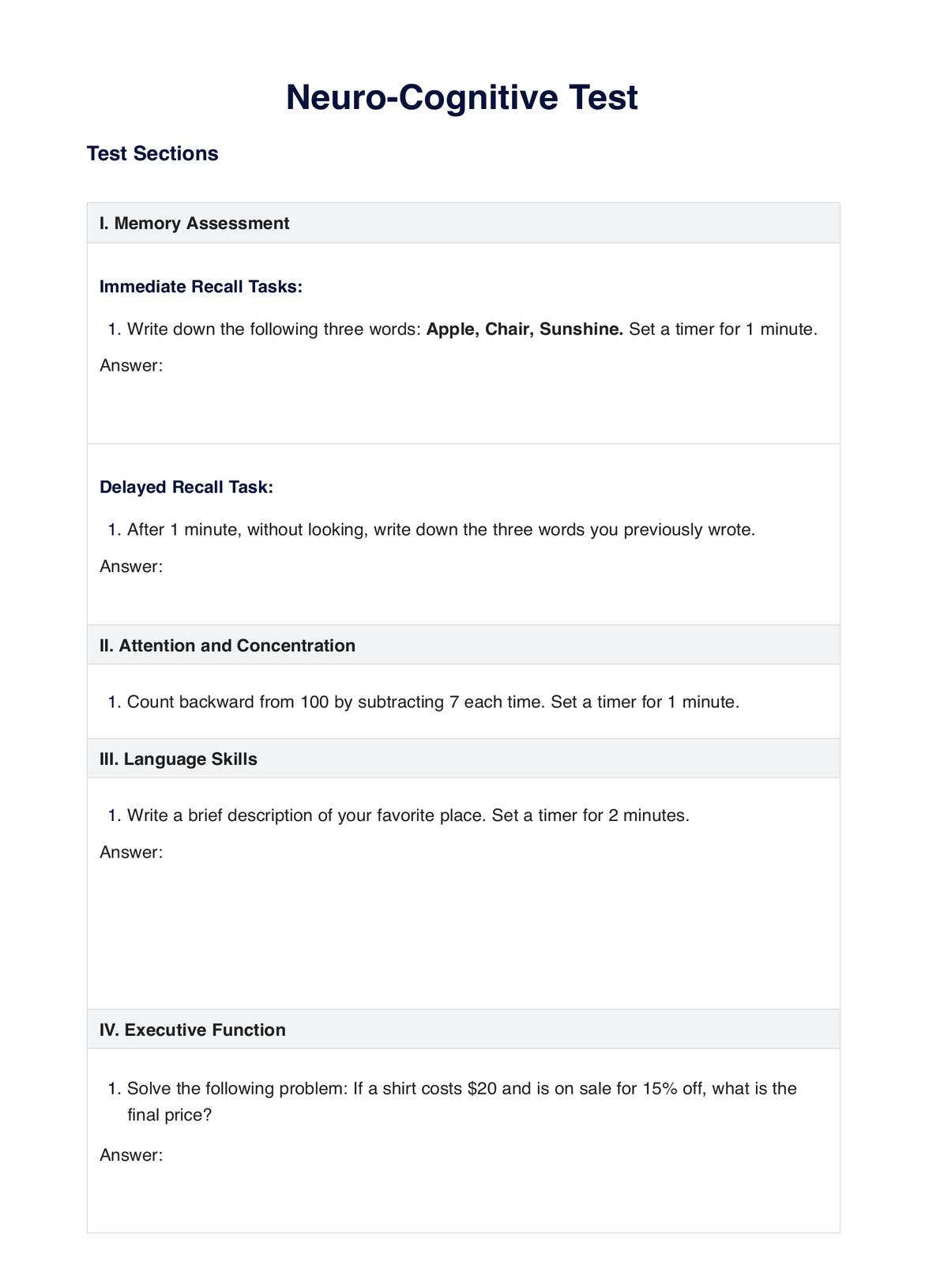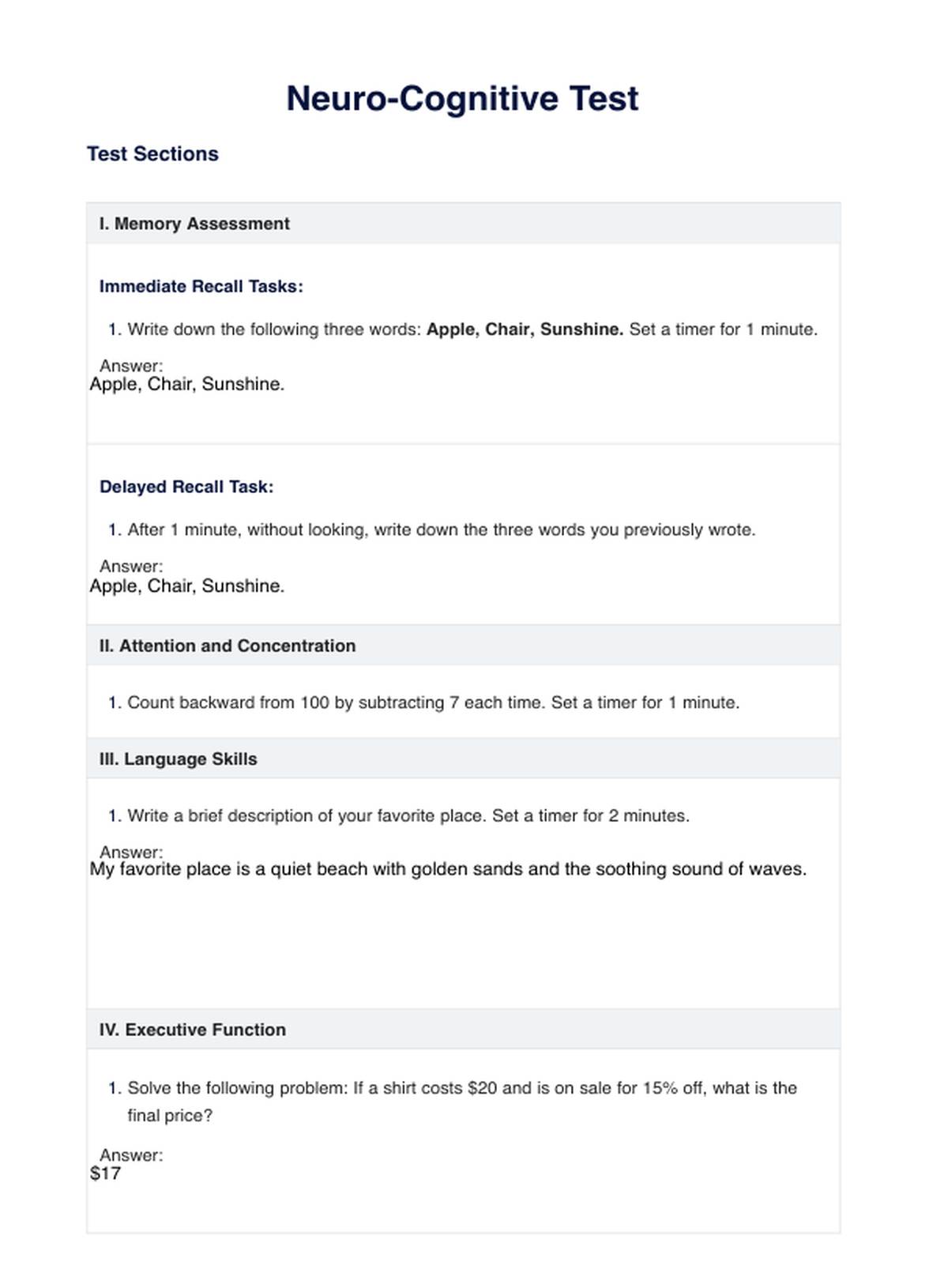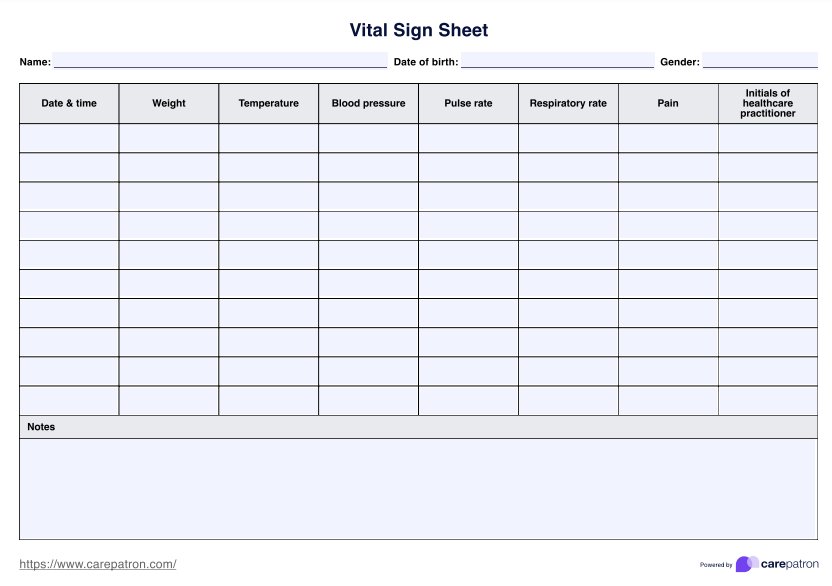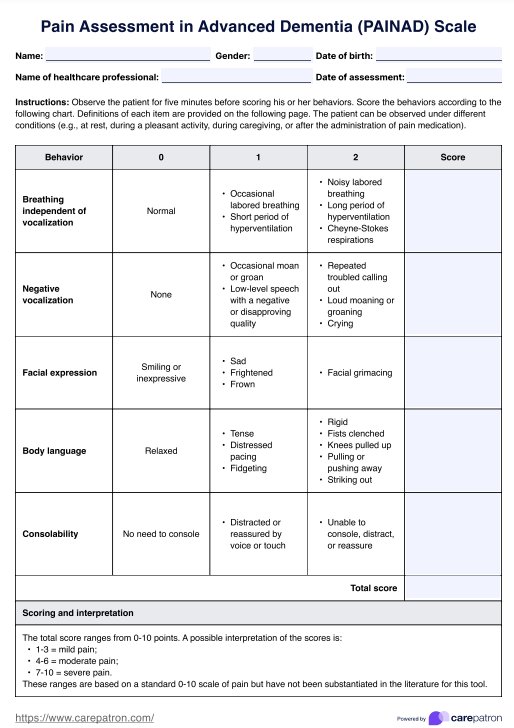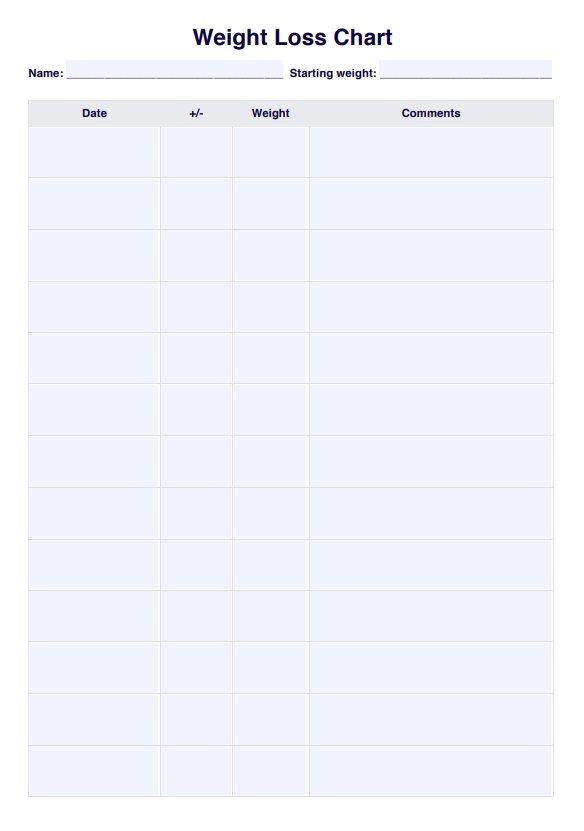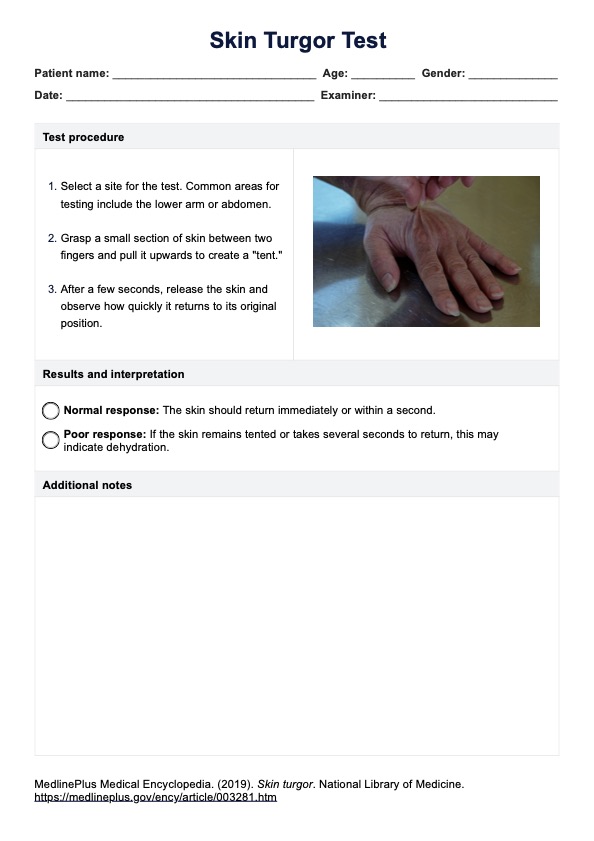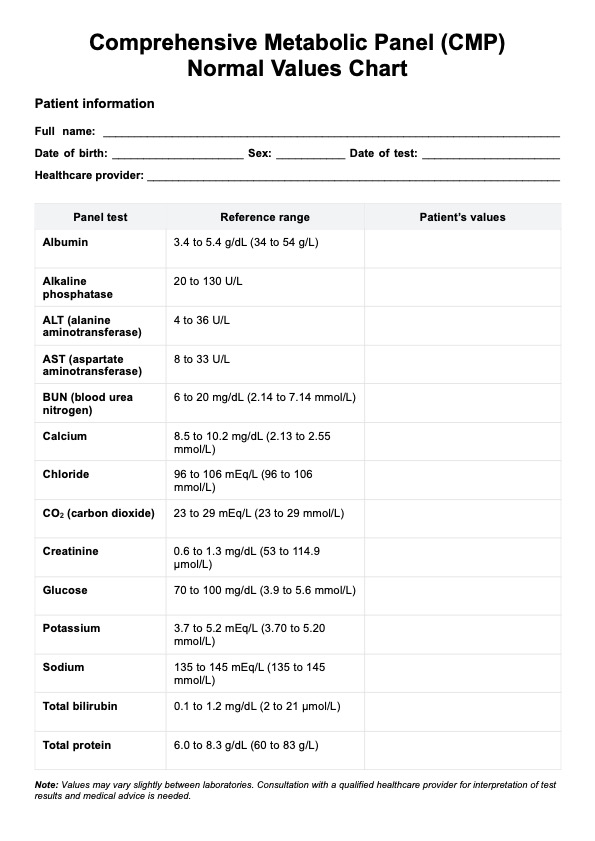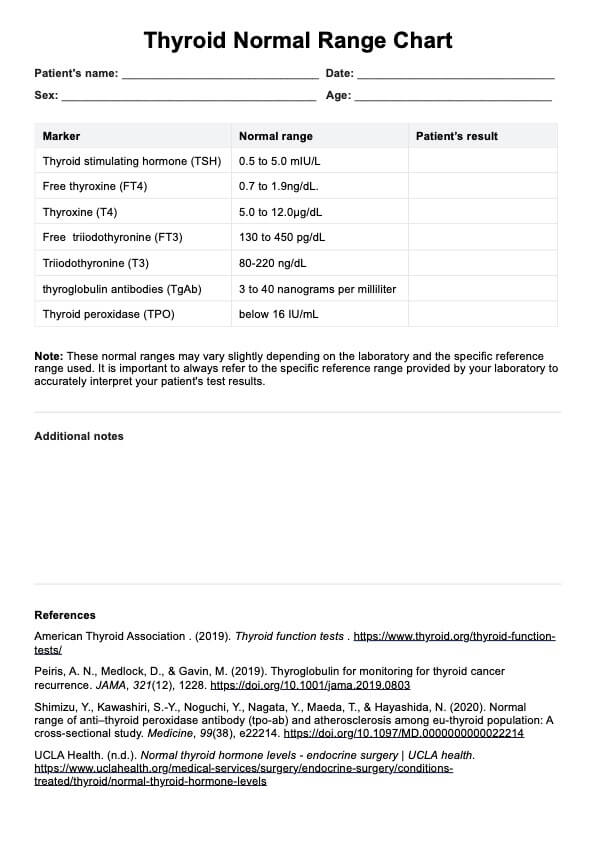Neuro Cognitive Test
The Neuro Cognitive Test assesses cognitive functions for a comprehensive understanding of an individual's cognitive abilities.


What is neuro cognitive testing?
Neuro cognitive testing is a comprehensive evaluation that assesses various aspects of cognitive function, making it a valuable tool for understanding brain health and functioning. These tests, such as the Montreal Cognitive Assessment (MoCA), the Mini Mental State Exam (MMSE), and other cognitive assessments, are designed to measure cognitive functioning, including memory, attention, language, and problem-solving abilities. Neuro cognitive testing plays a crucial role in early detection and identification of cognitive impairments, including mild cognitive impairment, and can contribute to the diagnosis and follow-up of conditions such as Alzheimer's disease.
The tests involve small tasks, such as copying shapes, memory recall, and simple tests that evaluate cognitive abilities. For older adults, these assessments help identify potential cognitive decline and determine the need for further testing or medical evaluation. Neuro cognitive testing is not limited to specific age groups and can be used across the lifespan to assess cognitive function and risks associated with cognitive problems. Clinicians and doctors use these assessments to measure cognitive abilities, identify symptoms, and make informed decisions about treatment and intervention strategies.
One of the important aspects of neuro cognitive testing is its ability to evaluate cognitive function at different time points, allowing for tracking changes over time and making it a valuable tool for ongoing research in the field. Additionally, neuro cognitive testing is crucial in concussion management, helping doctors and clinicians assess cognitive function and guide treatment decisions.
These tests are essential for understanding cognitive function, determining cognitive risks, and providing valuable information for medical and research purposes.
Neuro Cognitive Test Template
Neuro Cognitive Test Example
Reasons for cognitive testing
Neuro cognitive testing is a pivotal tool in evaluating various aspects of cognitive function, making it essential for many reasons. One of its primary roles is in the early detection and identification of cognitive impairments, including mild cognitive impairment, by assessing critical domains such as memory, attention, language, and problem-solving abilities. This comprehensive evaluation involves tasks like copying shapes and memory recall, offering insights into cognitive skills crucial for understanding cognitive decline and making informed decisions about diagnosis and treatment.
Neuro cognitive testing is vital for individuals of all ages in determining cognitive functioning and potential risks associated with cognitive problems. Clinicians and doctors utilize these assessments to measure cognitive function, identify symptoms, and make informed decisions regarding patient care. The tests also help track changes over time, allowing for continuous monitoring and contributing valuable data for ongoing research in the field.
In addition to its diagnostic applications, neuro cognitive testing is instrumental in concussion management, providing a means for doctors and clinicians to assess cognitive function and guide treatment decisions. Furthermore, these tests are adaptable across different populations, helping clinicians evaluate cognitive function in older adults and individuals at risk of cognitive decline.
How to use this Neuro Cognitive Test Template
Step one: Obtain the Neuro Cognitive Test Template
You can do this by navigating our templates section on the Carepatron OS. From here, you'll want to go ahead and download this workbook to your device by clicking the link. You can utilize the template online on your device or print it out for physical use by your clients.
Step two: Work through the testing template
It's up to you how you might suggest your client to use this template. Follow the instructions on the testing template and ensure your client knows what is going on within the test. Give your clients the safe environment they deserve while completing the test and answer any questions they may have.
Step three: Check-in with client
As always, when it comes to therapy, having a check-in with your clients is a great idea. During this time you might want to ask how they felt things went during the test, anything they have concerns about and if they have any questions.
Step four: Store the workbook
You may want to store the completed workbook for later. No worries, Carepatron has you covered. You can either save the file to our secure OS system that will keep it private if you have utilized the workbook on a device or scan the physical copy through to your device and save. It's that simple!
You can leverage the Cognitive Test Template to enhance your practice and improve client outcomes. This template offers a systematic approach to evaluating cognitive functions, helping to identify areas of impairment and track changes over time.
Interpreting the results of this assessment
Interpreting the results of the Neuro Cognitive Test is a crucial step in understanding an individual's cognitive functioning comprehensively. The assessment covers various cognitive domains, including memory, attention, language, and executive function. Each section provides valuable insights into different aspects of cognitive health.
- Memory: This section assesses an individual's ability to recall immediate and delayed information. A higher score indicates better memory retention.
- Attention: Measuring the ability to focus and maintain concentration, this section evaluates the individual's attentional capacity. A higher score suggests better attentional control.
- Language: The language domain evaluates language comprehension and expression. It includes tasks such as naming objects, following instructions, and repeating sentences.
- Executive function: This crucial domain assesses higher-order cognitive abilities involved in planning, problem-solving, and decision-making. A higher score indicates stronger executive functioning.
Neuro Cognitive Test scoring
Delving into cognitive test scores requires a nuanced understanding, not just a binary of "good" and "bad." Here's how to navigate the complexities:
Beyond numbers:
- Scores are contextual: A raw score alone doesn't tell the whole story. Consider age, education, and test version before judging performance.
- Domain analysis: Explore individual domain scores (memory, attention, language) to identify specific strengths and weaknesses, even within a "normal" range.
- Clinical picture matters: Underlying medical conditions or medications can impact performance. Interpret scores in the context of overall health.
Understanding cutoff scores:
- Cutoff scores: Scores below a certain point may suggest potential cognitive impairment but are not rigid thresholds.
- False positives and negatives: Cutoff scores have limitations. Further evaluation is crucial for accurate diagnosis.
- Individual considerations: Age, education, and cultural background can influence interpretations. Use cutoff scores as starting points, not definitive answers.
What makes a "good" score?
- Meeting normative expectations: Scores within the expected range for your age and education level generally suggest normal cognitive function.
- Maintaining consistency: Consistent performance over time can indicate stable cognitive function.
- No single answer: Defining "good" depends on the test, purpose of assessment, and individual context. Avoid simplistic labels.
Moving beyond "bad" scores:
- "Bad" is relative: Scores below the cutoff aren't inherently negative. They signal the need for further evaluation and potential support.
- Understanding the cause: Through comprehensive assessments, identify underlying reasons for low scores.
- Focusing on support: Address underlying conditions and implement interventions to support cognitive function.
Commonly asked questions
Memory recall, word fluency, visuospatial puzzles, attention checks, and language tasks.
No, they screen for potential impairment requiring further evaluation.
To detect early cognitive decline for timely intervention and support.


